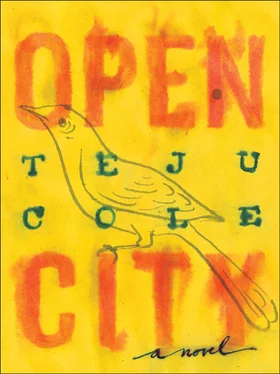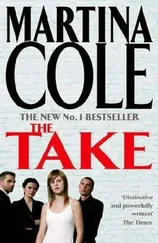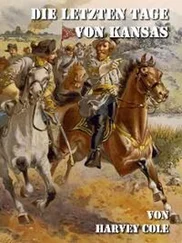As a free man, I married my Juliette, and God’s mercy was enlarged in our lives. She, like me, had come over from Haiti during the fighting; I bought her freedom before I had mine. Our life together here was difficult at times, abundant at other times, and through the intercession of the most Holy Virgin, we served those who had less than we did, in every way we could. The years of yellow fever were the most difficult. It fell on us like plague, and many were those who died in this city. My own cherished sister Rosalie succumbed to it, and we took her daughter, Euphemia, into our home as though she were ours. I am not a physician, and I know nothing of medicines, but we cared for the sick as best as we could in those years. When the worst of it was over, Juliette and I established our school for black children in St. Vincent de Paul down on Canal, down where the Chinese are now. Many of those children were orphans, and through the learning of a trade, the good Lord improved their situation, so that they were not in the debt of any man. He honored his servant in this work, he honored us both, my Juliette and I, and no honor he did us was greater than to enrich us so that we could further his work. The money we gave for the establishment of the cathedral down on Mulberry was his alone, this is the truth, and it all happened by the good graces of the Holy Virgin. He established it, we only helped build it. Nothing in a man’s life happens except as ordained from on high.
OUTSIDE, THE TEMPERATURE HAD DROPPED, AT LAST. I TIGHTENED my scarf and walked two blocks up to Thirty-fourth Street, past the brick-face Carmelite monastery there. No entrance was apparent on the continuous wall. My shoes gleamed, but the polish revealed only that they were old and in need of replacing, as now the lines and wrinkles in the leather were more visible. At the corner, the lights of a diner flickered with large neon words: SUPPORT OUR TROOPS. The first two letters of TROOPS failed to light. Christmas shoppers stalked the streets, huddled under black cloaks rimmed with fur. As I came to Ninth Avenue, there was a silent commotion along a stand of trees just one block to the south, on Thirty-third, where I saw pamphlets opposing the war fluttering in the wind like a flock taking sudden flight. I had the impression of a crowd dispersing, the height of their activity just past. A police barrier lay on its side.
That afternoon, during which I flitted in and out of myself, when time became elastic and voices cut out of the past into the present, the heart of the city was gripped by what seemed to be a commotion from an earlier time. I feared being caught up in what, it seemed to me, were draft riots. The people I saw were all men, hurrying along under leafless trees, sidestepping the fallen police barrier near me, and others, farther away. There was some kind of scuffle some two hundred yards down the street, again strangely noiseless, and a huddled knot of men opened up to reveal two brawlers being separated and pulled away from their fight. What I saw next gave me a fright: in the farther distance, beyond the listless crowd, the body of a lynched man dangling from a tree. The figure was slender, dressed from head to toe in black, reflecting no light. It soon resolved itself, however, into a less ominous thing: dark canvas sheeting on a construction scaffold, twirling in the wind.
My attending NMS, the Nigerian Military School in Zaria, was my father’s idea. It was a distinguished institution, its admissions policy was not preferential toward the children of soldiers, and it was famed for producing disciplined teenagers. Discipline: the word had the force of a mantra among Nigerian parents, and my father, who had no military background himself, who indeed had a strong distaste for formalized violence, was taken in by it. The idea was that, in six years, a wayward ten-year-old would be made into a man, a man with all the coolness and strength the word soldier implied.
I had no objection to going. King’s College was more prestigious academically, but it would have been too close to home, and that would have suited neither me nor my parents and, in any case, going as far north as Zaria promised its own freedoms. It must have been in July 1986 that my parents drove me up for the one-week interview. I had never been in Northern Nigeria before, and its broad, desertified territory, with small trees and parched shrubs, might as well have been another continent, so different was it from the chaos of Lagos. But it was also part of one single country, across which the same red dust blew, all the way from Yorubaland up into the Hausa Caliphate.
Our cohort for interview week consisted of 150 boys. They came from all over the country, and almost none had been away from home before. Walking in the dry grass of the school’s compound one day with two other boys, I saw a black mamba. The snake looked at us for a moment, then swiftly vanished into the undergrowth. One of my companions was so immediately deranged by fear that he’d begun to weep. He swore he would never return and ended up going to a day school in Ibadan, where his family lived. It was for the best; he would never have survived Zaria, where poisonous snakes were the least of our worries.
I was admitted, and I sent in my registration details. In September, my parents drove me up again. On this second drive, sitting in the backseat, I recall wrestling with myself about my unexamined loyalty to my father, and my growing antipathy toward my mother. They had made a kind of peace with each other over some rift that had been hidden from me, but I nursed the hurt on my father’s behalf. My mother, during their conflict, had become cold, frighteningly so, not just to my father but to almost everyone in her environment. Then she got over it, and moved on. She became, once again, interested in the Nigeria around her, the country she loved but to which she could never belong. When my father passed away, a couple of years later, the vague sense of pique I’d developed during their fight became something harder, though I never, as far as I can now remember, actually blamed my mother for his death.
NMS was a turning point: the new schedule, the deprivations, the making and breaking of school yard friendships and, above all, the endless lessons in where one stood in the hierarchy. We were all boys, but some boys were men; they had natural authority, were athletic, or intelligent, or from rich families. No one thing was enough, but it became clear that we were not all equal. It was a strange new life.
IN FEBRUARY OF MY THIRD YEAR, MY FATHER WAS DIAGNOSED with tuberculosis, and by April he was dead. Our relatives, my father’s relatives in particular, were hysterical, too present, too eager to help and demonstrate their grief, but my mother and I countered them with stoicism. This must have baffled people. But they did not know that our stoicism was disunited, my mother and I saying little to each other, our glances full of dark rooms. Only once did I interrupt that silence. I told my mother that I wanted to see my father, but not the body in the morgue. I was asking to have him restored to me and to life, pretending to an innocence that, at fourteen, I no longer had. Julius, she said, what is the meaning of this? It seemed to her a cruelty, this obvious pretense, and her heart was doubly broken.
The name Julius linked me to another place and was, with my passport and my skin color, one of the intensifiers of my sense of being different, of being set apart, in Nigeria. I had a Yoruba middle name, Olatubosun, which I never used. That name surprised me a little each time I saw it on my passport or birth certificate, like something that belonged to someone else but had been long held in my keeping. Being Julius in everyday life thus confirmed me in my not being fully Nigerian. I don’t know what my father had hoped for in naming his son after his wife; she must have disliked the idea, as she disliked anything that came from sentimentality. Her own name must have been taken from somewhere in her family line, too, a grandmother, perhaps, or some distant aunt, a forgotten Julianna, an unknown Julia or Julietta. She had in her early twenties extricated herself from Germany and run off to the United States; Julianna Müller had become Julianne Miller.
Читать дальше












